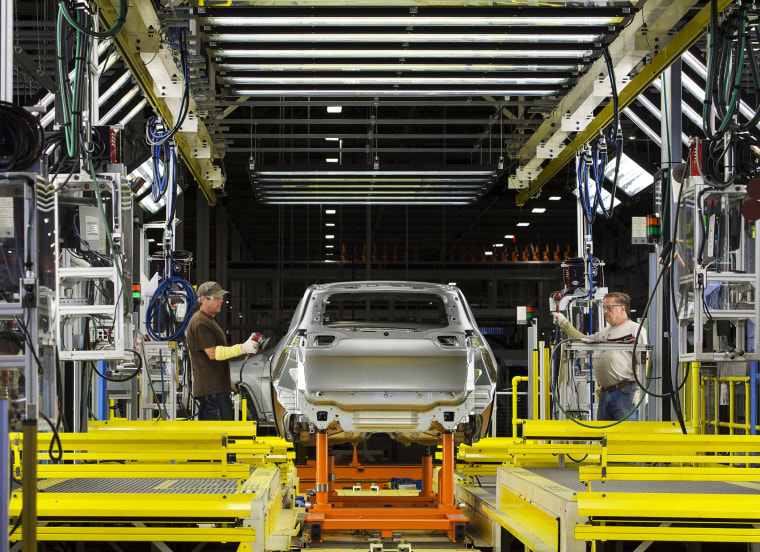Congressional Republicans generally shy away from President Obama's rescue of the American auto industry, and it's easy to understand why: the White House's policy was a striking success. GOP leaders condemned the rescue and told Americans it would fail. The right ended up getting the whole thing backwards.
For that matter, it's become a political loser, too. "Let Detroit Go Bankrupt" made it nearly impossible for Mitt Romney to credibly compete in Michigan in 2012, despite his hometown roots, and Terri Lynn Land's opposition to Obama's policy contributed to her miserable failure in Michigan's U.S. Senate race in 2014.
But as the Detroit News noted the other day, Sen. Marco Rubio (R-Fla.) is nevertheless following a familiar GOP script.
Republican presidential candidate Marco Rubio said Friday that the $85 billion auto bailout was not the "right way" to handle the troubled sector in 2008 and 2009. At an appearance in Manchester, New Hampshire, the Florida senator said the rescue of General Motors Co. and then Chrysler Group LLC was not the right position for the federal government to take. "I don't think that was the right way to handle it, but certainly our auto industry is important. Again, it was a problematic approach that the federal government took to doing it....
The Florida Republican then transitioned to his support for conservative tax and regulatory policies.
Six years after the Obama administration's approach to the auto industry was implemented, it's unusual to hear Rubio's complaint. but the real oddity is the way in which the senator is still looking at the issue.
By every metric, Obama's policy worked. The industry -- the backbone of American manufacturing -- was on the verge of collapse. Without effective action, at the height of the economic crisis, hundreds of thousands of U.S. workers were poised to lose their jobs as the doors closed permanently on storied American companies.
Fortunately, Obama's plan worked and the U.S. auto industry bounced back in an extraordinary way. Literally every Republican prediction of failure turned out to be wrong.
And yet, Rubio's still unimpressed. Sure, Obama rescued the industry. And sure, he saved the hundreds of thousands of jobs. And sure, the entire White House policy demonstrates the importance of competent big government working to save a struggling private sector from collapse.
But looking back, the junior senator from Florida is still of the opinion that the successful policy wasn't "the right way to handle it."
For a few too many Republicans, effective policymaking is nice, but it's not quite as important as ideologically satisfying policymaking.
